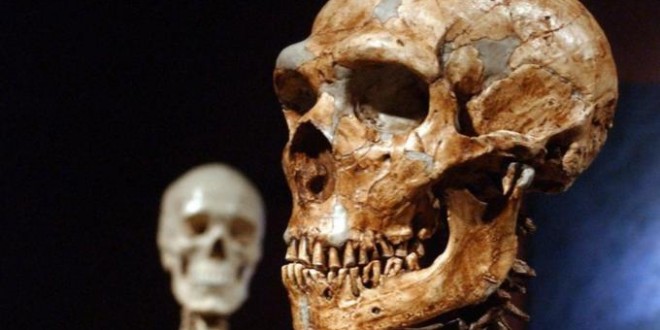The widely-held idea that Neanderthals were wiped out because they were intellectually inferior is not supported by scientific evidence, say experts.
The species — which is closely related to humans and lived between 350,000-40,000 years ago — might instead have disappeared because they interbred with humans, Paola Villa and Wil Roebroeks claim in a paper published yesterday.
Scientists have long speculated, but never clearly determined what happened to the Neanderthals. Some theories speculated that modern humans were more intellectually equipped, were better able to hunt in groups, had broader diets or a variety of evolutionary advantages.
This study, published in the journal Plos One, however points away from this speculation. ”The explanations make good stories, but the only problem is that there is no archaeology to back them up,” said Wil Roebroeks from Leiden University.
Dr Paola Villa, of the University of Colorado Museum, said that the false assumptions of Neanderthal intellect arose because scientists were comparing modern humans to Neanderthals. Scientists should compare Neanderthals to humans who lived with them during the Upper Paleolithic era. Villa said that comparing humans with Neanderthals is like comparing humans from the 19th century to the 21st century, and concluding that 19th century humans were less intelligent because they didn’t have modern technology.
So what did happen to the Neanderthal? Scientists still aren’t sure. Some evidence suggests that humans and Neanderthals mated, but now that the Neanderthal genome has been sequenced scientists may be able to dig further. What this study does tell us is what may not have happened. “Stereotypes help people to order their world,” Roebroeks explains. “But the stereotype of the primitive Neanderthal is now gradually eroding, at least in scientific circles.”
Agencies/Canadajournal
 Canada Journal – News of the World Articles and videos to bring you the biggest Canadian news stories from across the country every day
Canada Journal – News of the World Articles and videos to bring you the biggest Canadian news stories from across the country every day



